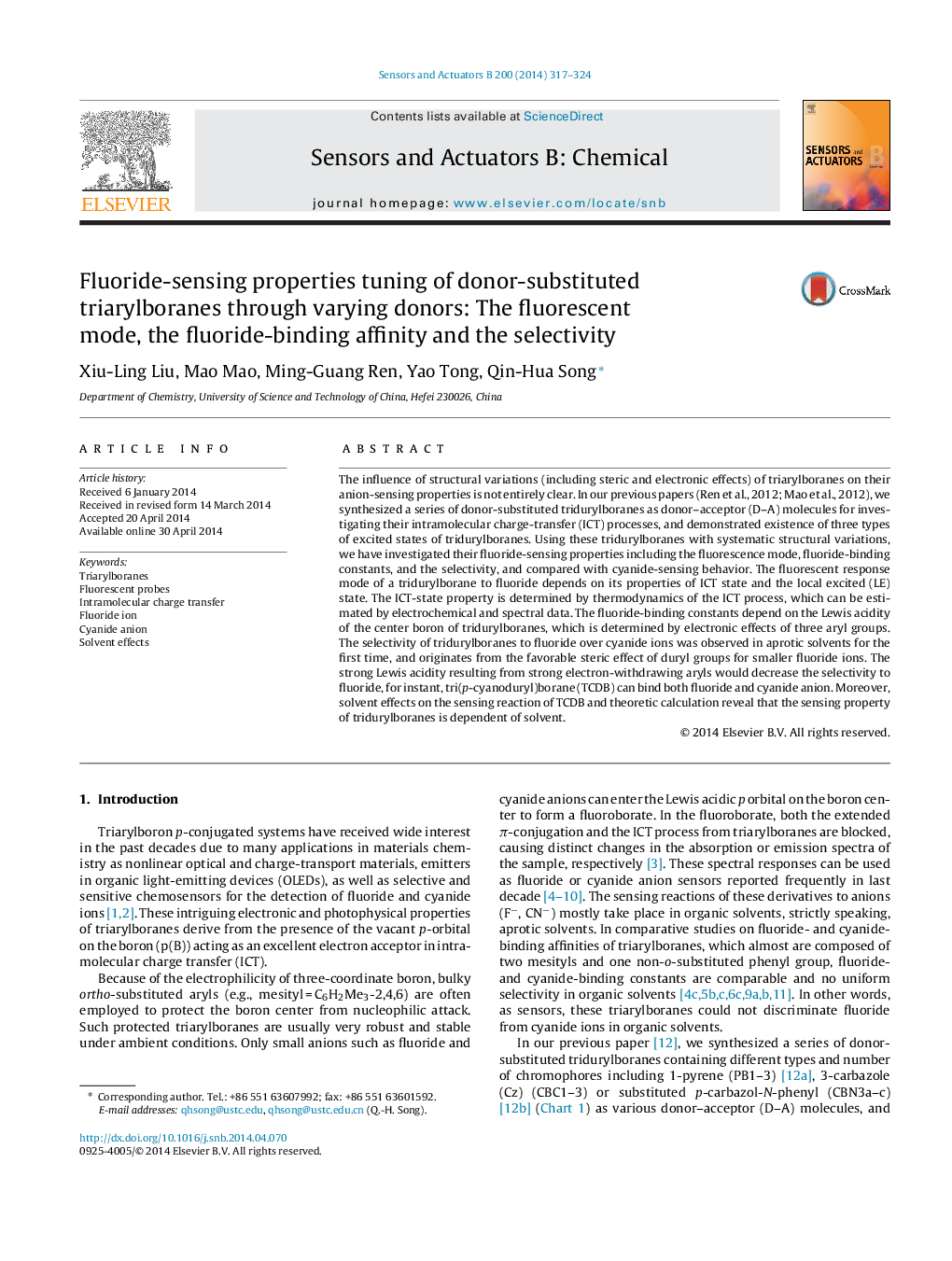| کد مقاله | کد نشریه | سال انتشار | مقاله انگلیسی | نسخه تمام متن |
|---|---|---|---|---|
| 739999 | 1462090 | 2014 | 8 صفحه PDF | دانلود رایگان |
• The relationship of structures and the fluoride-sensing property of tridurylboranes.
• Tridurylboranes for selective detection of fluoride over cyanide anion in aprotic solvents.
• The anion-sensing property of tridurylboranes is dependent of solvent.
The influence of structural variations (including steric and electronic effects) of triarylboranes on their anion-sensing properties is not entirely clear. In our previous papers (Ren et al., 2012; Mao et al., 2012), we synthesized a series of donor-substituted tridurylboranes as donor–acceptor (D–A) molecules for investigating their intramolecular charge-transfer (ICT) processes, and demonstrated existence of three types of excited states of tridurylboranes. Using these tridurylboranes with systematic structural variations, we have investigated their fluoride-sensing properties including the fluorescence mode, fluoride-binding constants, and the selectivity, and compared with cyanide-sensing behavior. The fluorescent response mode of a tridurylborane to fluoride depends on its properties of ICT state and the local excited (LE) state. The ICT-state property is determined by thermodynamics of the ICT process, which can be estimated by electrochemical and spectral data. The fluoride-binding constants depend on the Lewis acidity of the center boron of tridurylboranes, which is determined by electronic effects of three aryl groups. The selectivity of tridurylboranes to fluoride over cyanide ions was observed in aprotic solvents for the first time, and originates from the favorable steric effect of duryl groups for smaller fluoride ions. The strong Lewis acidity resulting from strong electron-withdrawing aryls would decrease the selectivity to fluoride, for instant, tri(p-cyanoduryl)borane (TCDB) can bind both fluoride and cyanide anion. Moreover, solvent effects on the sensing reaction of TCDB and theoretic calculation reveal that the sensing property of tridurylboranes is dependent of solvent.
A series of donor-substituted tridurylboranes were employed to investigate their fluoride-sensing properties including fluorescent modes, binding constants and the selectivity.Figure optionsDownload as PowerPoint slide
Journal: Sensors and Actuators B: Chemical - Volume 200, September 2014, Pages 317–324
